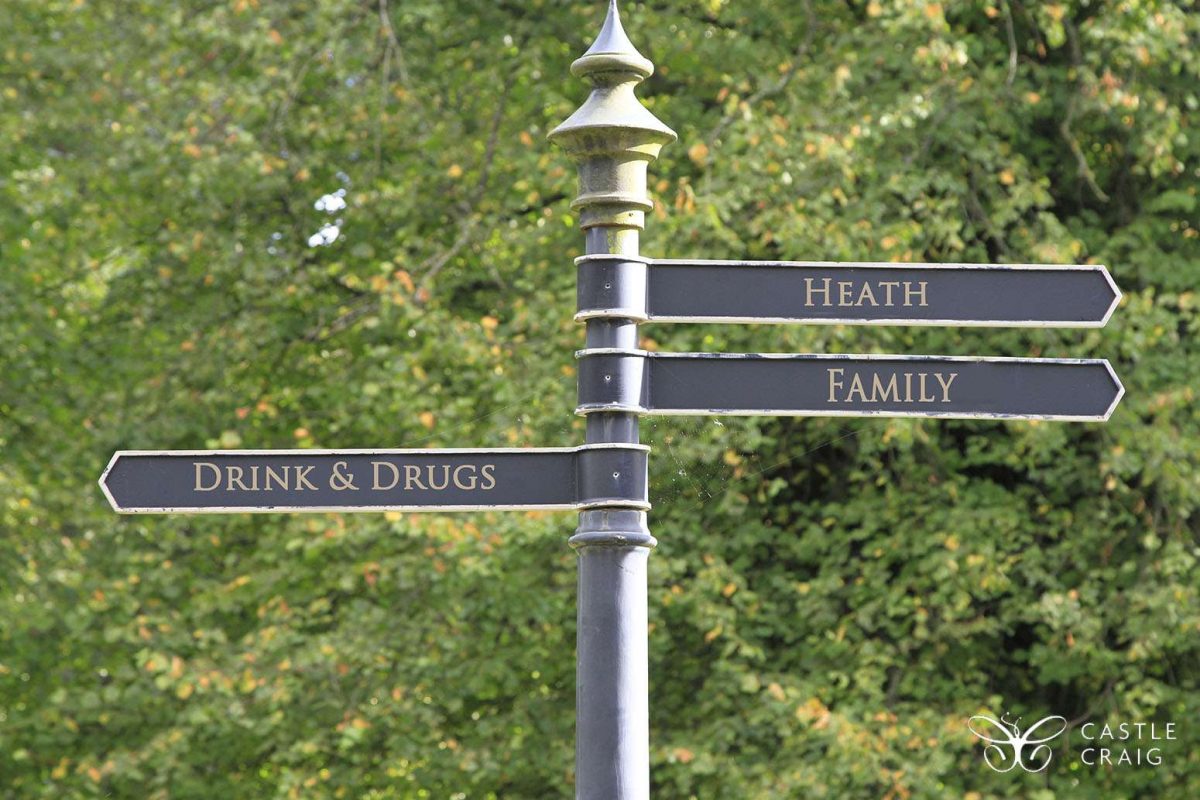Dangers of Combining Cocaine and Alcohol
Many people who enter alcohol or cocaine addiction treatment have experimented with combining different drugs.
Cocaine and alcohol in particular are both commonly used in social settings by casual users, and people sometimes use the two together in order to maximise the effects of each.
However, while using cocaine and alcohol together may begin recreationally, mixing the two increases your chances of becoming addicted to one or both.
In fact, according to the European Monitoring Centre for Drugs and Drug Addiction, over 50 per cent of people with cocaine misuse issues also struggle with alcohol dependency.
There’s a commonly held belief that drinking and taking cocaine together can boost your high while easing withdrawal symptoms.
However, the truth is that mixing these two substances can drastically increase the risk of experiencing dangerous side effects such as addiction, overdose and death.
Why Do People Mix Cocaine and Alcohol?
People mix cocaine and alcohol for a variety of reasons, but it’s usually in order to use one drug to temper the negative side effects of the other. For example, cocaine has stimulating effects.
It can make you feel euphoric, but it can also make you feel anxious, jittery, paranoid, and as time goes on, sad or depressed as the drug leaves your system. Some people will drink alcohol when using cocaine to curb these low feelings and extend the euphoric high for longer.
On the other hand, alcohol is a depressant. While it can make you feel relaxed or happy, and lower your inhibitions, it can also make you feel drowsy, sad, or low energy. Some people take cocaine alongside alcohol to increase their energy levels and mood while drinking.
Others combine these two substances spontaneously, due to social situations where both substances are on hand.
There are many reasons why people might choose to combine alcohol with cocaine—but whatever the reason, it can be very dangerous to do so.
Please call our 24-hour helpline if you feel drugs and alcohol are costing you more than just money: 01721 728118.
What are the Effects of Combining Cocaine and Alcohol?
On their own, cocaine or alcohol can cause damage to the body and over time, pave the way for a variety of ensuing health issues. They both increase impulsive behaviour, decrease decision-making skills, and reduce your overall cognitive function. When combined, these health risks increase and new risks present themselves.
Common side effects of combining cocaine and alcohol include:
- Increased heart rate
- Increased blood pressure
- Difficulty breathing
- Heart palpitations
- Loss of motor control
Many people combine these substances because it prolongs the feel-good effects of both drugs. Cocaine helps you maintain energy, and alcohol can help stave off the “comedown” from cocaine and the anxious and depressive feelings that often come with it.
When people use these two drugs together, they often feel less impaired than they actually are.
Because they’re not experiencing the negative side effects of either drug, they may continue to drink and use cocaine despite becoming increasingly impaired.
Combining cocaine and alcohol can therefore make you more likely to further misuse one or both drugs, as alcohol can fuel cocaine use and vice versa.
How Do Cocaine and Alcohol Combine to Create Cocaethylene?
One of the most dangerous effects of combining cocaine with alcohol is the production of cocaethylene in your liver. When you ingest harmful substances, your body removes them from your bloodstream and sends them to your liver so you can metabolise them out of your system safely.
On their own, both alcohol and cocaine can take hours or even days to metabolise out of your body.
When the two drugs are metabolised together, a substance called cocaethylene is produced in the liver as a result of the cocaine being altered in the presence of alcohol.
This new substance is more dangerous than alcohol or cocaine on its own and can take a long time to eliminate from your body.
Research has shown that cocaethylene is produced in the liver roughly two hours after you’ve ingested both drugs, (source: Science Direct) and that about 20 per cent of the cocaine your liver attempts to metabolise is disrupted by alcohol, producing cocaethylene.
From there, when your liver tries to eliminate the cocaethylene, the alcohol that’s still in your system slows down the process.
If you continue to drink alcohol, your body continues to struggle to eliminate cocaethylene and it passes from the liver into your bloodstream.
There, it can have detrimental effects on your tissues and organs and can produce intoxicating effects much more powerful than cocaine or alcohol can alone.
What are the Dangers of Cocaethylene?
Cocaethylene enhances the euphoric effects associated with both alcohol and cocaine. However, this also means you may experience an increase in blood pressure, impulsive and even violent behaviour, and poor judgement. Worse yet, cocaethylene is far more toxic than cocaine or alcohol and can build to toxic levels in the liver.
This can ultimately result in sudden, sometimes fatal, overdose.
Once your liver has begun producing cocaethylene, you may experience one or more of the following dangerous consequences:
- Increased risk for heart attack and stroke: Cocaethylene raises your heart rate and blood pressure more than cocaine alone does and impairs your heart’s ability to contract. Studies show cocaethylene increases your risk of heart attack and stroke more than alcohol or cocaine alone.
- Increased alcohol consumption: The production of cocaethylene has been linked to binge drinking. This can cause strain on your body, such as liver damage, nerve damage, and alcohol poisoning.
- Higher levels of toxicity: Cocaethylene is up to 30 per cent more toxic than cocaine and stays in your system up to three times longer. This increases your chance of experiencing toxic effects, such as overdose or death.
- Increased risk for drug misuse: Because combining alcohol and cocaine tempers the negative side effects, you might feel from each, it encourages you to continue using both drugs. Cocaethylene also blocks your brain’s reuptake of dopamine, which heightens the high you feel and may increase your cravings for both substances.

Can Mixing Alcohol and Cocaine Result in Overdose?
Yes, mixing alcohol and cocaine can result in an overdose. On their own, you can consume enough of either substance to result in death.
When you combine the two, you often can’t tell how impaired you are and will continue to use one or both substances excessively, at which point you may overdose.
In addition, using cocaine and alcohol together is the substance combination most highly associated with drug-related deaths. Not only does combining these substances increase your risk of overdose, but it’s also been associated with suicide and accidental deaths from risky behaviour. Studies have found that people are more likely to complete a suicide attempt when alcohol and cocaine are both present in the blood. More.
Treatment for Alcohol and Cocaine Misuse
If you find yourself struggling with dependence on alcohol or cocaine, you’re not alone. Many people struggling with alcohol addiction also face challenges with dependence on other substances.
At Castle Craig, we have a team of leading consultant psychiatrists, expert addiction doctors, experienced nurses and qualified therapists to tackle all aspects of addiction.
More on going to Alcohol rehab.
If you’re concerned about your alcohol and cocaine use, contact us today for more information. There’s always hope for recovery—with the right comprehensive care, you can not only overcome addiction, but live a fun, full, and rewarding life without the need for drugs.



